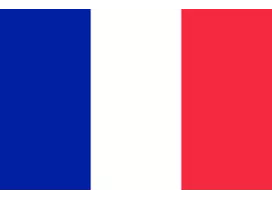France customs regulation
Import and Export laws of France
France is a big country with around 67M French. Official language is French. France uses metric system (kilograms, centimeters, °C). Time zone is UTC+01:00 with daylight saving time. Currency used in France is Euro (EUR).
🏙️ Paris🗣️ French
👨👩👦👦 67M ☀️ ~11 °C 🌧 ~69 mm 👍 Developed 🚩 641k km2 (247k mi²)
Import Regulation
Tobacco 🚬
200 cigarettes;
100 cigarillos;
50 cigars;
250g of smoking tobacco; or
A proportional combination of these goods (such as 100 cigarettes and 50 cigarillos).
Currency 💵
There are no restrictions on the importation of currency into the EU.
Funds of more than €10,000 must be declared to the customs authorities.
Prohibited ⛔
Narcotic and psychotropic drugs (except when accompanied by a prescription, medical certificate or an import and export authorisation).
Counterfeit goods.
The following breeds of dogs are prohibited: Staffordshire bull terriers, American Staffordshire terriers, Mastiffs/Boerboels, Tosas, and Molossers.
Endangered species and their derivative products protected under Appendix I of the Convention on International Trade in Endangered Species (CITES).
Pornographic products or objects which include the representation of minors.
Restricted ⚠️
Plants and plant products require a Common Health Entry Document for Plant Protection. For further information, please visit theMinistry for Agriculture, Agrifood and Forestry.
Endangered animals, plants, and their derivative products protected under the Convention on International Trade in Endangered Species (CITES) may require protected species permits.
Live animals (including pets) and animal based products are subject to a mandatory health inspection at the first point of entry on EU territory. They must also have a microchip or tattoo, and have been properly vaccinated against rabies. A Common Veterinary Entry Document certifying the healthy inspection must be provided with the customs declaration. Pets travelling within the EU must have a valid pet passport. For further information, please visit theVeterinary and Phytosanitary Border Inspection Office (SIVEP).
Cultural goods leaving France must travel with a certificate, and cultural goods leaving the EU must leave with a certificate and an export authorisation. For further information, please visit theMinistry for Culture and Communication.
Weapons and ammunition, depending on their category, are subject to prior transfer agreement, import authorisation, transfer permit, or export authorisation.
Meat, milk and other dairy products for personal consumption are allowed from EU countries, Andorra, Canary Islands, Channel Islands, Isle of Man, Liechtenstein, Norway, San Marino and Switzerland.
Meat, fish, dairy, and animal origin products are not allowed from non EU countries except Croatia, the Faroe Islands, Greenland and Iceland.
Plants, flowers, fruit and vegetables are allowed in small quantities from EU countries and in some cases non EU countries.
Other rules ℹ️
Medication for personal use.
Personal items of non-commercial nature worth up to €430 when travelling by air or sea.
Personal items of non-commercial nature worth up to €300 when travelling by land.
Personal items of non-commercial nature worth up to €200 for travellers under 15 years of age.
Export Regulation
Prohibited ⛔
All the items on the prohibited import list.
Restricted ⚠️
There are no restrictions on the export of currency if leaving for another EU country. Funds of more than €10,000 must be declared when leaving the EU.
Protected species and their derivative products protected under CITES require a permit for export.
Countries nearby France
More on France travel and visa information
All the informations you need to schedule your trip to France.








